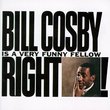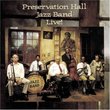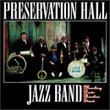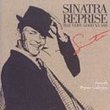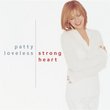| All Artists: Bix Beiderbecke, Bing Crosby Title: With the Paul Whiteman Orchestra Members Wishing: 2 Total Copies: 0 Label: Asv Living Era Original Release Date: 11/18/1992 Re-Release Date: 4/20/1994 Genres: Jazz, Special Interest, Pop, Broadway & Vocalists Styles: Swing Jazz, Traditional Jazz & Ragtime, Nostalgia, Oldies, Vocal Pop, Classic Vocalists, Traditional Vocal Pop Number of Discs: 1 SwapaCD Credits: 1 UPC: 743625500523 |
Search - Bix Beiderbecke, Bing Crosby :: With the Paul Whiteman Orchestra
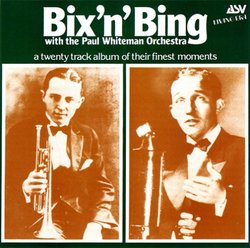 | Bix Beiderbecke, Bing Crosby With the Paul Whiteman Orchestra Genres: Jazz, Special Interest, Pop, Broadway & Vocalists
While Paul Whiteman had long billed himself as the "King of Jazz," the jazz quotient of his music went up substantially in 1927 when cornetist Bix Beiderbecke joined the orchestra as a frequently featured soloist. The addi... more » |
Larger Image |
CD DetailsSynopsis
Amazon.com While Paul Whiteman had long billed himself as the "King of Jazz," the jazz quotient of his music went up substantially in 1927 when cornetist Bix Beiderbecke joined the orchestra as a frequently featured soloist. The addition of Bing Crosby as a member of Whiteman's "Rhythm Boys" vocal group was an important contribution as well; Crosby's relaxed phrasing and rhythmic acuity eventually marked a major shift in the popular singing of the day. Beiderbecke immediately asserts his presence on "Changes" with an inventive, improvised solo full of subtle details and striking inflections. Even when restricted to written parts, his cornet is a distinct and fluent voice in the ensemble. The band's developing jazz qualities become increasingly apparent, particularly on arrangements like "Louisiana" and "Mississippi Mud," but Beiderbecke's creative freshness still stands out when posed against the strings on sentimental ballads. --Stuart Broomer Similarly Requested CDs
|
CD ReviewsFirst and Last Chapters of Two Great Careers Peter A. Greene | Franklin, PA United States | 02/09/2002 (5 out of 5 stars) "Bix knew as much about the self-destuction of talent as Janis Joplin and Jim Morrison ever would. Here Whiteman, as he would a few other times, harbors a great jazz talent to spice up his band and keep a national traesure from starving to death. Bix gets his chances to kick butt with an explosive and awesome sound; some outstanding solo work here, and at moments you can hear him pull the whole band along behind him, like a Porsche pulling a couple of dachshunds. This is among his last great recordings.Then there's Bing. If there hadn't been a Crosby, there never would have been a Sinatra. While others pursued the standard Incredibly Stiff White Guy style that predominated in the twenties, Bing was apprenticing with jazz players. He made it okay to relax, use a little jazz style, and to use a baritone voice instead of the usual Too Much Starch In MY Shorts tenor that was favored. Here you can hear him start to step out of the traditional box and start to assert the style that would completely change the face of male pop singers.This is a great recording, a nice set of tunes, and an important chapter in American pop music history. I wore out my old vinyl version of this. Highly recommended." Great collection of early Crosby Candace Scott | Lake Arrowhead, CA, USA | 08/02/2000 (5 out of 5 stars) "Bing Crosby albums showcasing his 1920's singing are brilliant and fun to listen to. Though his voice matured and became more resonant in the 30's, these early cuts with Bix are pure magic. Bing had fun and took great license with the melody and lyrics and engaged in some engaging scat singing, which he eschewed later on in his career. As the Gary Giddins' biography showed, Crosby was highly influenced by the incomparable Louis Armstrong and Satchmo's style can be heard in these seminal recordings.I owned this record for years on vinyl and the CD version has a crisper sound and greater clarity. Pay particular attention to "My Pet," one of Bing's great early gems as a member of the Rhythm Boys, and "Lovable," which gives a hint to the great voice developing." Bix 'n Bing old time classics, very nice cd E. Nuiten | Netherlands | 08/13/2005 (4 out of 5 stars) "When you like old style jazz, and especially Paul Whitemans period ('20s and early '30s) this CD is an example of the best orchestra in its time with the best singer Bing Crosby. The cornetplayer Bix is the best in this kind of music. Really this cd is top, the best, when you like this kind of music."
|

 Track Listings (20) - Disc #1
Track Listings (20) - Disc #1

